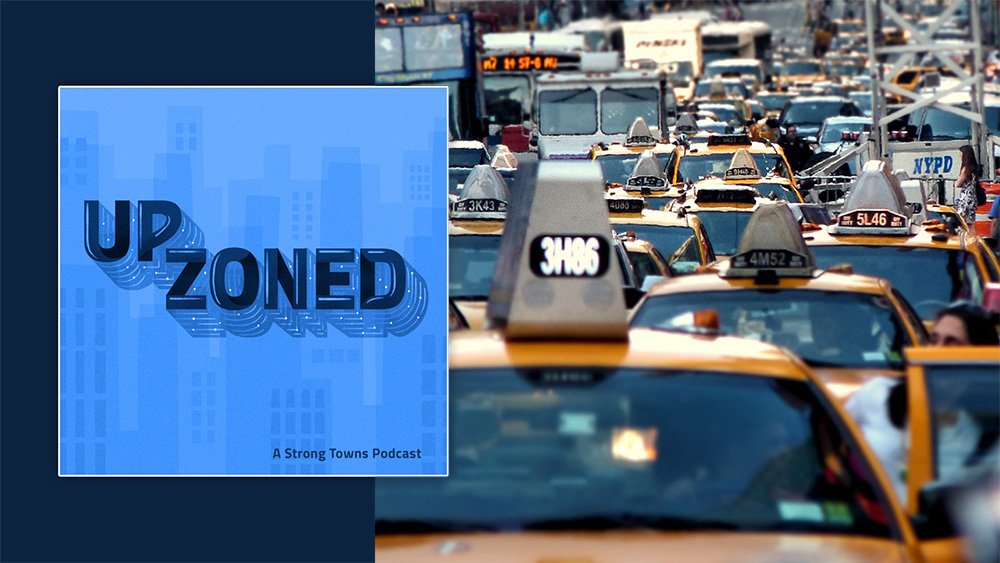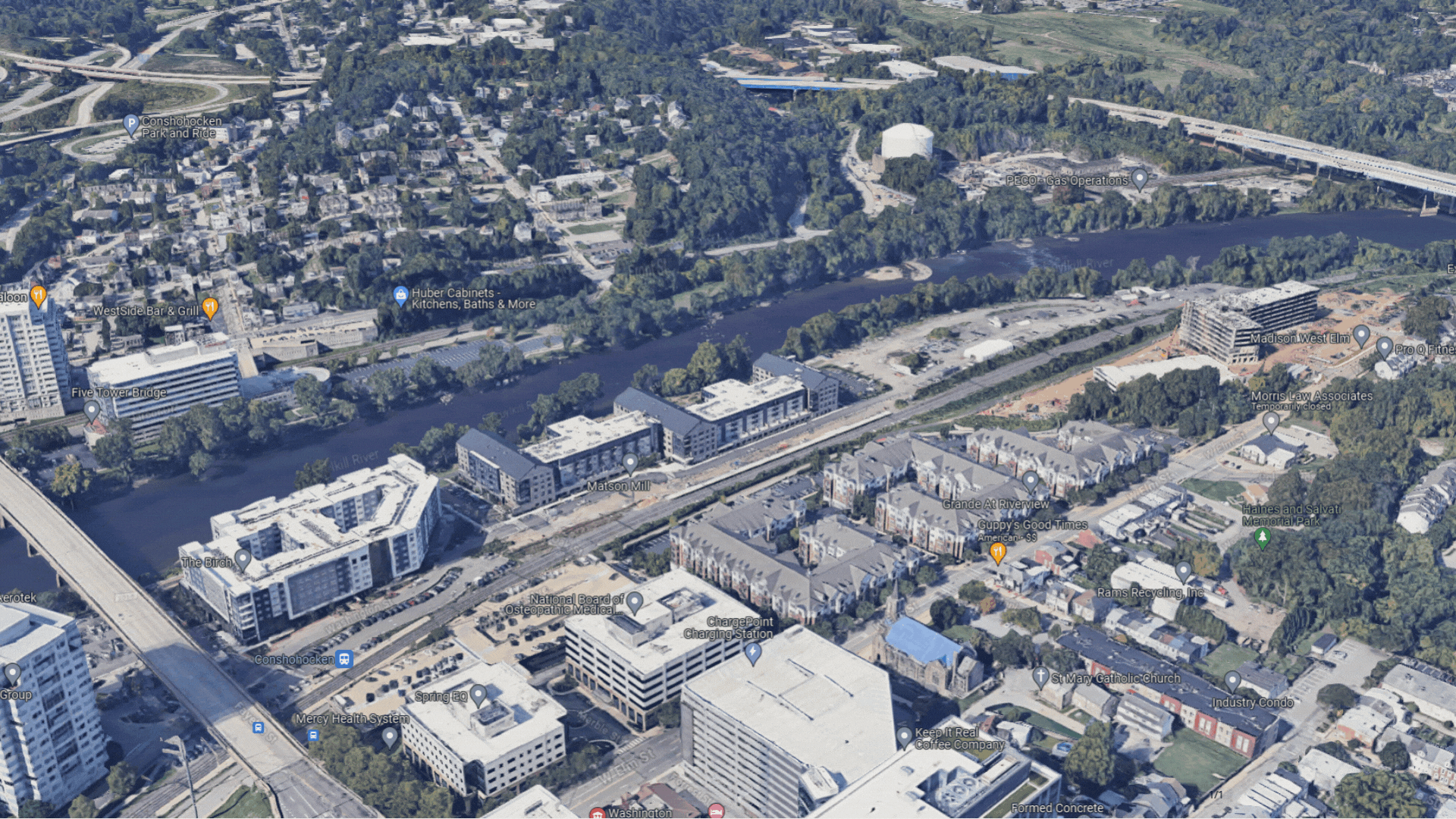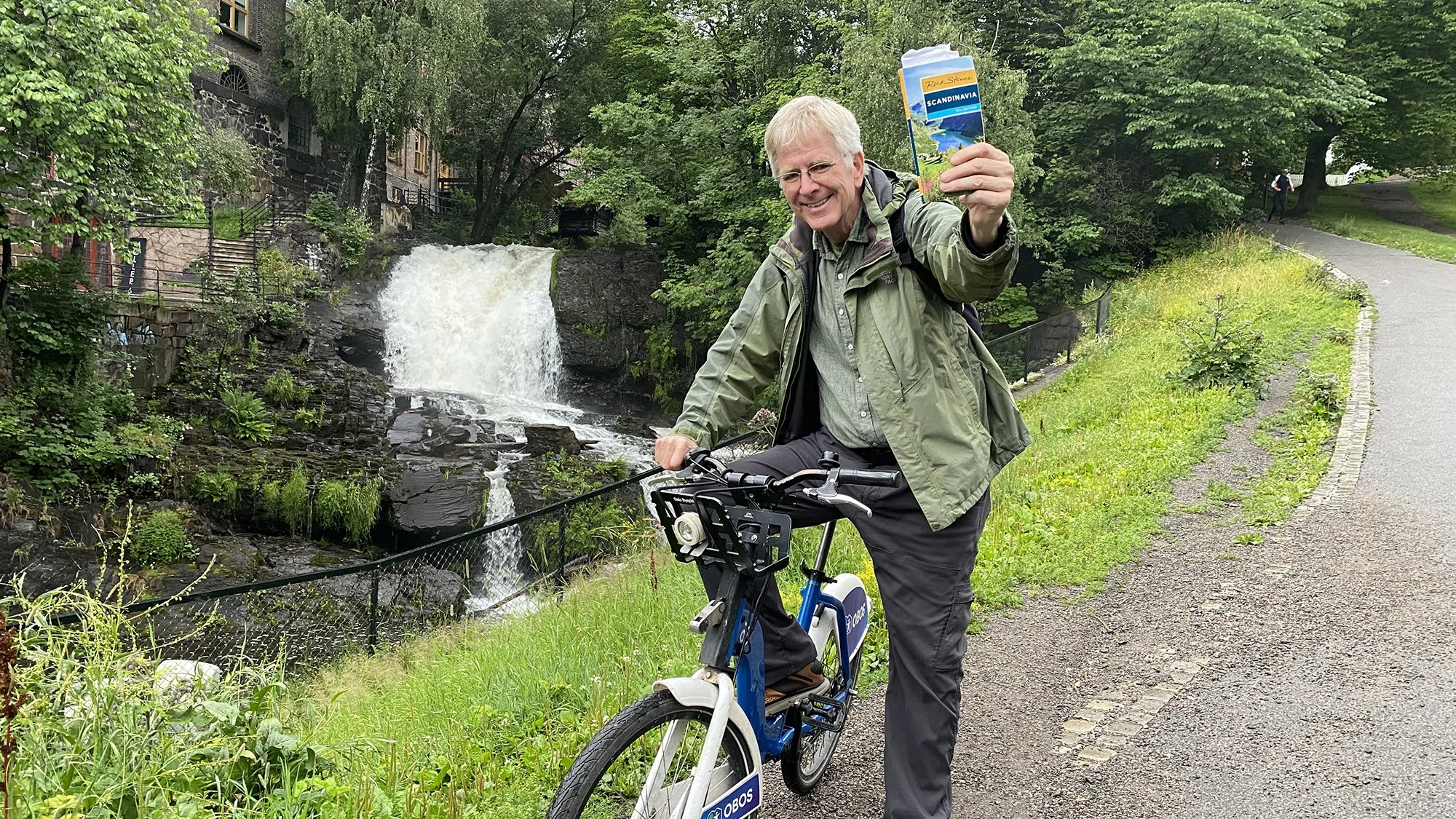A new ordinance removes costly parking requirements across most of Chicago, clearing the way for more affordable housing and business development.
Read MoreWhat began as a quiet act of care—building benches where none existed—just got the City of Richmond’s official blessing.
Read MoreIn this episode, Chuck explains that we’ve created a political climate where you either take a chainsaw to failing systems or you refuse to acknowledge that they’re failing. He then shows how the Strong Towns approach offers a better way. (Transcript included.)
Read MoreThe Trump administration’s elimination of congestion pricing was shortsighted, but NYC’s congestion pricing was deeply flawed from the start. If congestion pricing is ever going to work as intended, it needs to be revamped with the right priorities.
Read MoreBuses are an important part of a city’s transportation system, but they’re considered a mode of last resort for many people. Here’s why it’s important to make bus systems more appealing — and a few ideas on to do so.
Read MoreErik Lowe is the founder of Reimagine Spokane, a grassroots group calling for safer streets and better transit, and the designer of the “Spokane Reimagined” plan, a $1 billion proposal to improve safety and connectivity in Spokane, Washington, over 20 years.
Read MoreThe governor of New York recently announced the dissolution of the city’s congestion pricing program after years of planning and hundreds of millions of dollars of investment. Here’s the Strong Towns take on it.
Read MoreMany bus routes have moved away from traditional static signage to digital maps and schedules that can be updated in real time. But is this really the right move, or are there enough benefits to static signage to justify it sticking around?
Read MoreIt’s hard for people to be excited about something they’ve never experienced before. How can we use positive experiences to change that?
Read MoreWhy don’t the small things get funding?
Read MoreRethinking car culture is easier once we more broadly measure what we’re giving up.
Read MoreEric Goldwyn, a leading urban scholar and program director at the Marron Institute of Urban Management, joins us to talk about the importance of both transit and local government.
Read MoreLike countless transit agencies nationwide, SEPTA has been struggling to restore ridership in the aftermath of the COVID-19 pandemic. But this certainly isn’t the right way to do it.
Read MoreLos Angeles is often held up as the case study for car-centric development run amok, but in recent years, the city has been pursuing a completely different path: public transit champion.
Read MoreWe talk with author Jake Berman about the history of rail networks in America’s cities and why our transit systems are the way that they are in the current era.
Read MoreIn 2013, the capital of Estonia, Tallinn, declared transit (buses, trains, and trams) free for residents. So why is it that more Estonians are driving now than they were 10 years ago?
Read MoreFamous guidebook author, tour operator, and PBS travel host Rick Steves talks about his observations of places that have prioritized people over cars and infrastructure—and what we can learn from them.
Read MoreDe-stroading the country will make everything better for everyone, including those who regularly drive, and create places we are proud of.
Read MoreTransit-oriented development suggests that homes, shops, and services should all be located within 400 meters of transit. The actual distance to create vibrant streets may be much shorter.
Read MoreBuses are great, but not if the surrounding infrastructure doesn’t support people getting to their bus stop on foot.
Read More



















